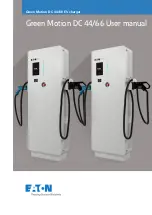
vapours. Keep fuels out of the reach of chil-
dren.
If you or others come into contact with fuel,
observe the following:
R
Wash the fuel off any affected areas of skin
with water and soap immediately.
R
If you get fuel in your eyes, rinse them thor-
oughly with clean water immediately. Seek
immediate medical attention.
R
If fuel is swallowed, seek immediate medi-
cal attention. Do not induce vomiting.
R
Change any clothing that has come into
contact with fuel immediately.
Tank capacity
Model
Total capa-
city
G 350 d PROFESSIONAL
Approx.
96.0 l
Model
Of which
reserve fuel
G 350 d PROFESSIONAL
Approx.
14.0 l
Diesel
Fuel grade
G
WARNING
If you mix diesel fuel with petrol, the flash
point of this fuel mixture is lower than that of
pure diesel fuel. When the engine is running,
components in the exhaust system may over-
heat unnoticed. There is a risk of fire.
Never refuel with petrol. Never add petrol to
diesel fuel.
!
When refuelling, only use diesel fuel that
conforms to the European standard EN 590 or
is of equivalent quality. Fuel that does not
conform to EN 590 can lead to increased wear
as well as damage to the engine and exhaust
system.
!
Do not use the following:
R
marine diesel
R
heating oil
R
bio-diesel
R
vegetable oil
R
petrol
R
paraffin
R
kerosene
Do not mix such fuels with diesel fuel and do
not use any special additives. Otherwise,
engine damage may occur.
!
Vehicles with diesel particle filters: in
countries outside the EU, only use low sulphur
Euro diesel with a sulphur content of under
50 ppm. Otherwise, the emission control sys-
tem could be damaged.
You will usually find information about the fuel
quality on the pump. If you cannot find the label
on the petrol pump, ask the filling station staff.
Information on refuelling (
Y
page 109).
Low outside temperatures
In winter months, diesel fuel with an improved
cold flow quality is available. In Europe, the
EN 590 standard defines various climate-
dependent temperature categories. Malfunc-
tions can be avoided by refuelling with diesel
fuel that corresponds to the climatic specifica-
tions outlined in EN 590. At unusually low out-
side temperatures, it is possible that the flow
characteristics of the diesel fuel could be insuf-
ficient. Accordingly, diesel fuel from warmer
areas may not be suitable for operation in colder
climatic conditions.
i
Further information on country-specific fuel
properties and fuel types with low-tempera-
ture resistance can be obtained from oil com-
panies, e.g. at filling stations.
AdBlue
®
Important safety notes
Comply with the important safety notes for ser-
vice products when handling AdBlue
®
(
Y
page 250).
Service products and capacities
251
Techn
ical
da
ta
Z








































